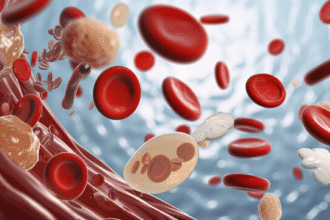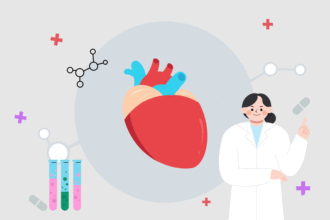Introduction
Being diagnosed with acute leukemia can be overwhelming. Beyond medical treatment, understanding how to care for your body, reduce risks, and maintain emotional well-being makes a huge difference in your journey. This guide translates clinical advice into practical tips to help you live your best life with leukemia.
1. Reducing Exposure to Harmful Agents
Certain environmental and chemical exposures can harm blood cell production in the bone marrow. While not direct causes of leukemia, avoiding these factors supports overall blood health:
- Limit ionizing radiation (ask about safety during medical imaging).
- Steer clear of benzene (found in some paints, solvents, and household products).
- Avoid nitrosamines (present in processed meats) and excessive exposure to certain drugs (e.g., chloramphenicol).
- If you require cytotoxic medications (such as cyclophosphamide), request regular blood counts and bone marrow checks to monitor your cells.
2. Nutrition and Lifestyle for Stronger Immunity
A balanced diet and active lifestyle support your body during and after chemotherapy:
- Eat high-protein, high-calorie meals rich in vitamins. Choose soft, easy-to-digest foods like smoothies, soups, and mashed vegetables when your appetite is low.
- Stay hydrated and add plenty of fruits and vegetables to your plate to aid digestion and regular bowel movements.
- Gentle exercise—walking, stretching, or tai chi—boosts circulation and lifts your mood.
- Protect fragile skin and gums: use lukewarm water (about 37°C) for bathing and avoid hot water to reduce bleeding risk.
3. Medication Adherence and Ongoing Treatment
Even after your initial remission, continuing follow-up treatments is key:
- Stick to your consolidation and maintenance chemotherapy schedule to prolong remission and minimize relapse risk.
- Keep a medication diary or set phone reminders so you never miss a dose.
4. Infection and Bleeding Prevention
With reduced white cells and platelets, simple cuts or germs can become serious. Adopt these habits to stay safer:
- Practice good hygiene: wash hands frequently, avoid crowded places during flu season, and clean minor cuts promptly.
- Inspect your mouth and throat each day for sores or bleeding—use a soft-bristled toothbrush and avoid toothpicks.
- Check your nose for dryness and apply gentle nasal drops (like saline or mild peppermint oil) to prevent cracks and nosebleeds.
- Keep medical contacts handy and call your care team immediately if you experience fever, unexplained bleeding, or severe pain.
5. Emotional Well-Being and Support
Leukemia affects more than just the body—your mental health matters:
- Stay informed: understanding your disease and treatment builds confidence.
- Lean on loved ones: ask family and friends for help with chores or errands, especially on low-energy days.
- Create a comforting environment: surround yourself with calming music, plants, or positive reminders.
- Consider counseling or support groups—sharing your story reduces isolation and brings hope.
6. Building Your Care Team
A strong network of healthcare professionals and peers keeps you on track:
- Hematologist/Oncologist: your primary treatment specialist.
- Nurse Navigator: guides you through appointments, medications, and tests.
- Dietitian: crafts meal plans to maintain strength.
- Social Worker/Counselor: supports emotional and financial challenges.
- Patient Advocates/Support Groups: offer practical tips and a listening ear.
Conclusion
Managing leukemia is a multi-faceted journey. By reducing exposures, nourishing your body, following treatment plans, and caring for your mental health, you can enhance your quality of life and resilience. Remember: you are not alone—reach out, stay informed, and keep moving forward.
Resources
- Leukemia & Lymphoma Society: https://www.lls.org
- American Cancer Society – Leukemia: https://www.cancer.org/cancer/leukemia.html
- National Cancer Institute: https://www.cancer.gov/types/leukemia







